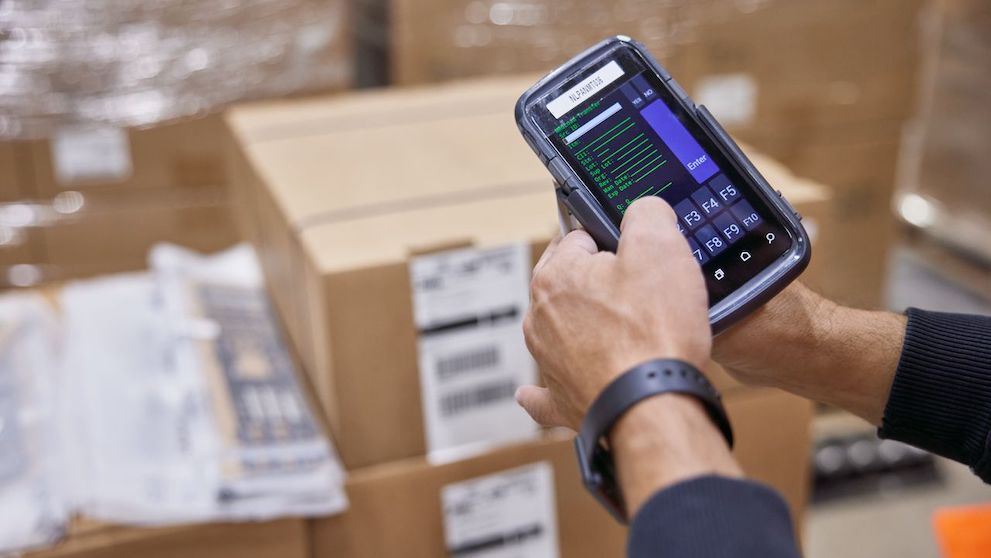The Internet serves as a powerful platform in providing an increased visibility for new business owners or businesses that intend to expand. Every day, millions of people are searching the internet, looking for products and services. E-commerce online shopping has grown exponentially as the years go by and it is seen as the most favourable way to purchase products, where you can do it at any time of the day.
Statistic source: Data Reportal Report Digital 2021 – Malaysia
However, do not get too excited. A smart business owner needs to constantly search for new ways to improve and expand their business. While selling goods through the company’s website and directly to end-consumers may appear to be an effective and fastest way of generating revenue, there are still many good reasons to use stockists or retailers to get your products into the marketplace. Do not forget that while most consumers nowadays, especially among the tech-savvy, are comfortable purchasing products and services online, there are still many who prefer to buy their goods from a physical store. Hence why you should consider both options.
WHY YOU SHOULD CONSIDER SELLING THROUGH YOUR WEBSITE
According to Statistia reports In June 2020, global retail sites saw a record high of 22 billion visits — and it is only set to grow with the increased proliferation of Internet use. According to the latest Adobe Digital Economy Index, global e-commerce sales were predicted to reach US$4.2 trillion in 2021. This presents a golden opportunity for you to promote your business to a wider consumer base and potentially widen profit margins.
1. LOWER SET UP AND RUNNING COSTS
When it comes to setting up a brick-and-mortar store and an e-commerce website, there is no doubt that the latter will incur a cost much lower than that of an offline business. With an online retail store, you can stand to enjoy lower upfront costs – the automated whole sales system translates to reducing staff, wages, electricity, rent, and other affiliated business expenses. The money you saved could then be directed to other crucial areas of your e-commerce business, which further avail your business to greater growth prospects.
2. LESS TIME CONSUMING
Once you have already set up your e-commerce shop, you can rest relatively easily as you will most likely not have to invest too much time running it. Investing in e-commerce automation, will ensure that the entire process for customers ordering and making payments will be automated. This will allow you to dedicate more time to determining new products to introduce in your catalogue, special offers you would like to launch and track your sales.
3. SCALABILITY
An e-commerce store effectively allows you to identify the products that are selling successfully, giving a hint at which of the products can you increase in stock and those that you can wean off slowly. Moreover, these high demand products can also be diversified into several other sectors through the product extension process, allowing your business to expand your customer base, and in turn, sales and profits.
4. MORE MEASURABLE
Tracking sales is one thing, measuring the sales performance results is another. With an e-commerce website, the latter will be a breeze. With systems like Google Analytics, you can view statistics regarding orders, average cart total, cart abandonment rate, total sales, and percentage of total revenue your site has managed to achieve at regular intervals. You can use this information to influence and suggest future purchases.
If you have integrated e-commerce advertising, even better! Through these Search Engine Optimisation tactics, you will be able to get a sense of what your consumer wants and identify what your rivals are targeting, all while increasing your reach.
5. DIRECT MARKETING
Unlike marketplaces, having an e-commerce store allows you to market directly to visitors and loyal customers. Some consumers are willing to offer their contact information, mailing their email addresses, to join the newsletter or mailing list. With their email addresses, you can distribute the latest deals and promotions to your consumers directly. Aside from direct marketing, having such direct access to your consumer base offers a platform to provide good customer service. Since it is easier to retain customers than it is to acquire new ones, having a good relationship with your consumers is necessary when generating revenue for your business.
WHY YOU SHOULD CONSIDER OF USING STOCKIST
While having an online retail store can be a great exposure for your business, let’s not forget the importance of a physical store. Setting up your OWN brick-and-mortar store might cost a lot of money, so why not try tapping into existing retail stores or stockists that can help store and promote your products to their existing customers.
Focusing solely on what you can potentially do better than any other organisation is the only path to greatness – Jim Collins
1. REACH
Selling products via a stockist or retail channel can expand a company’s geographical scope. Setting up a brick-and-mortar store and recruiting a sales team is a substantial investment in time and monetary costs. However, you can rapidly expand your operations to national or even regional levels by tapping into an established retail network. Collaborating with a stockist or retailer will allow you to store your products at their locations, and this will help in lowering your stock-holding and distribution costs. In addition, customers can easily pick up the items at the nearest stockist available to them, thus also reducing the time for customers to receive their purchases.
Royal Selangor Official Website
2. CUSTOMER RAPPORT
Customer rapport is one of the greatest advantages of retail sales. Retail outlets allow consumers to see what they are purchasing up close and obtain a deeper understanding of the products from the staff or stockist on duty. Unlike online stores, they also offer instant satisfaction as customers can walk away with their purchases right away.
Having a friendly and supportive staff or stockist on duty also contributes to customer loyalty, ensuring consumers return time after time.
From a business perspective, retail outlets facilitate the sale of your products to a customer base that might be put off by the online marketplace.
Motherchucker’s Official Website Stockist Webpage
3. LESS SHIPPING DRAMA
The most common disadvantages of online shopping for a seller would include consumers feeling duped, are dissatisfied, or forced to wait longer than the stipulated delivery time.
When choosing whether to sell in a retail store or online, keep in mind that selling in a physical store saves you from charging delivery fees and dealing with misplaced orders, tracking codes, customer addresses, and complicated online sales databases. With a brick-and-mortar store, you can make each sale with more certainty as well as less tension. In addition, there will be fewer refunds if consumers can see and sometimes try the product before purchasing it.
Alwis & Xavier make their products available in 5 countries via stockist
4. MARKET RESEARCH
Stockists and retailers have direct access to the end consumer, and this allows for instant feedback. For example, suppose you want to do market research on a current or new product. Stockists can help you obtain the information directly from your end-users when they enter a store.
“Innovation needs to be part of your culture. Customers are transforming faster than we are, and if we don’t catch up, we’re in trouble.” — Ian Schafer
Compared to new market entrants, stockists and retail stores already have deeper market understandings and what the consumers want and need. This may be useful if you decide to expand your products to an international level. They can easily guide you on demand and penetration strategies that you can take on.
5. MARKETING
There are various marketing strategies that can be arranged with stockists and retailers. One of which includes exclusive rights to selling your products. This is where some retailers may stock only your products and not of your rivals.
Amazin’ Grace made products available internationally via stockist
In other arrangements, stockists may have a greater say in managing the final price of goods. This will allow them greater flexibility in promoting new items at reduced prices or offering special deals based on individual sales receipts.
ESTABLISHING AN OMNICHANNEL RETAILING STRATEGY
Both a brick-and-mortar store and an e-commerce website offer plenty of benefits to meet various business needs. In order to reap the rewards, setting up an omnichannel retail strategy that includes both physical and online retail stores is crucial. By having a multichannel retailing approach to sales, you can create an integrated and cohesive customer experience no matter how, when and where your consumers reach out to your brand.
As such, it is high time for you to consider a presence in physical stores with the help of stockists and not rely purely on online store sales, and vice versa. That said, if you are considering teaming up with stockists and retailers, the trick is to find a good stockist or retailer that can help both of you to achieve more, not necessarily for profit but longevity.

















































